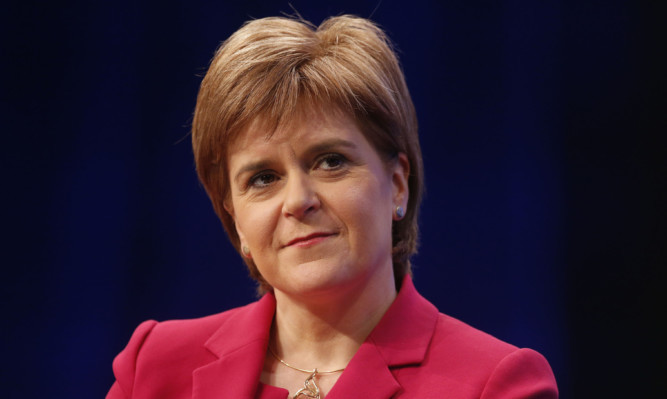Nicola Sturgeon has warned independence supporters not to “hurl abuse” online at those who disagree with their views.
The SNP leader and Scottish First Minister spoke out on Twitter after Scotland’s last minute defeat to Australia in the quarter-final of the Rugby World Cup.
The intervention followed abuse directed at Harry Potter author JK Rowling after she tweeted her support for the Scottish team.
Ms Sturgeon posted: “Note to my fellow independence supporters. People who disagree are not anti-Scottish. Does our cause no good to hurl abuse (& it’s wrong).”
Ms Rowling was a high-profile supporter of the Better Together campaign during last year’s referendum on Scottish independence.
In one Twitter exchange, the pro-independence political blogger Wings Over Scotland questioned her right to support the team, writing: “You don’t think we’re a nation at all.”
I know Scotland's a nation. I live there, you see. I pay tax there and I contribute more than bile there. https://t.co/5AeGCfjl9v
— J.K. Rowling (@jk_rowling) October 18, 2015
The comment, which was also directed at Scottish writer Muriel Gray, attracted much opprobrium on Twitter, including from those who backed Yes in September’s vote.
In June, Ms Sturgeon warned so-called “cybernats” who are members of the SNP that they could be disciplined by the party.
Writing in the Daily Mail, she said it was “not acceptable” for people to use social media to “threaten violence, or hurl vile abuse, or seek to silence the voice of others through intimidation”.
Scottish Liberal Democrat leader Willie Rennie MSP said: “This is not new and not the first time that Nicola Sturgeon has reprimanded her own supporters for their online abuse but it is refreshing none the less as they used to deny that there was ever a problem.
“This reveals the scale of the problem for the nationalist movement which has been infected by large numbers of people who believe the way to win an argument is to be offensively aggressive online.
“My message to the nationalist movement is that we will not be browbeaten.”
